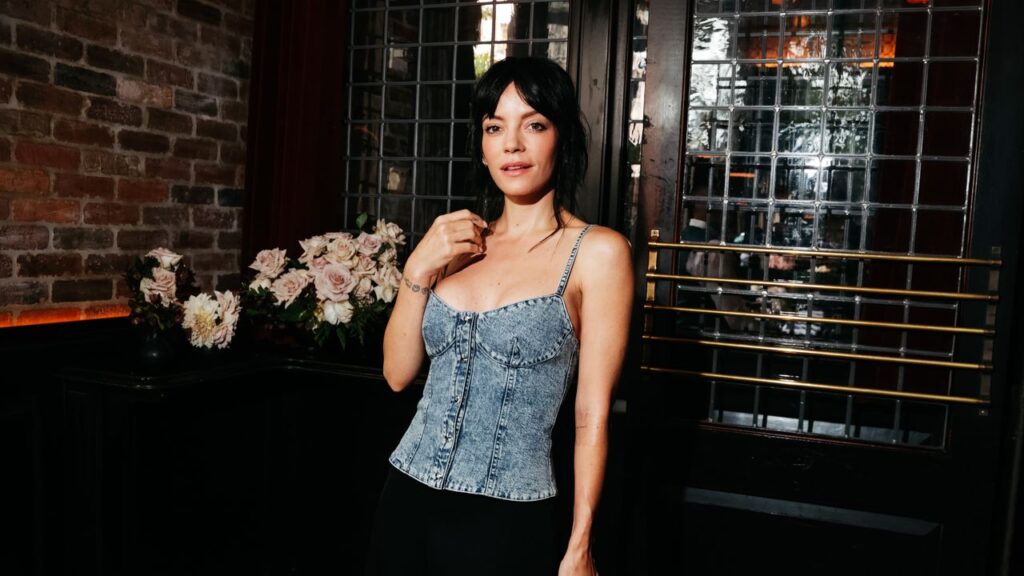Opening up a relationship is a negotiation—a labyrinthine, unpredictable, and especially horny one. Communicate what you need, listen to what they want, and work out all of the rules before—ideally—writing them down, so you can relay them to the world in a song when it all goes horribly wrong.
Yes, I’m talking about Lily Allen, whose new album, West End Girl, has set the internet alight with its powerful evisceration of an open marriage (her own?) gone wrong. “We had an arrangement,” the 40-year-old sings in “Madeline,” the now-viral track in which Allen addresses the other woman in a relationship. “Be discreet and don’t be blatant / there had to be payment / it had to be with strangers.”
Allen has said the album was inspired by her four-year marriage to Stranger Things star David Harbour, who (unsurprisingly) has yet to comment on its contents. While we’ll likely never know exactly what did or did not happen between them, the album paints a pretty clear picture of a woman opening up her relationship to appease her sex-addicted husband, only to wind up betrayed and humiliated when he breaks the rules they’d agreed on, stashing sex toys in a secret “pussy palace” and sleeping with women she knows.
Uninterested in practicing non-monogamy herself (“I just want to meet your needs,” she sings on “Nonmonogamummy”), Allen’s narrator concludes that opening the relationship was ultimately what ended it—a last-ditch attempt at fixing something that was already broken. It’s a brutal end. But if the album’s popularity is anything to go by, it’s clearly one that people can relate to.
Ethical non-monogamy (ENM) is nothing new. But as society moves further away from traditional relationship models, it has become more common to hear about couples opening their relationships when things aren’t working, to see if sleeping with other people might revive a desire that got lost somewhere between dividing up household chores and sorting out the electricity bill. I know a few couples who’ve done this—some more successfully than others.
Of course, it can work, though it requires partners to be intricately aligned in a way that I think is beyond most of our communication capabilities; you can’t just be on the same page, you have to be on the same line—or, better yet, the same word. You also have to be ruthlessly honest with yourself. I know many women who, like Allen, only agreed to an ENM dynamic to keep their partner happy, a scenario that almost always ends in tears.

